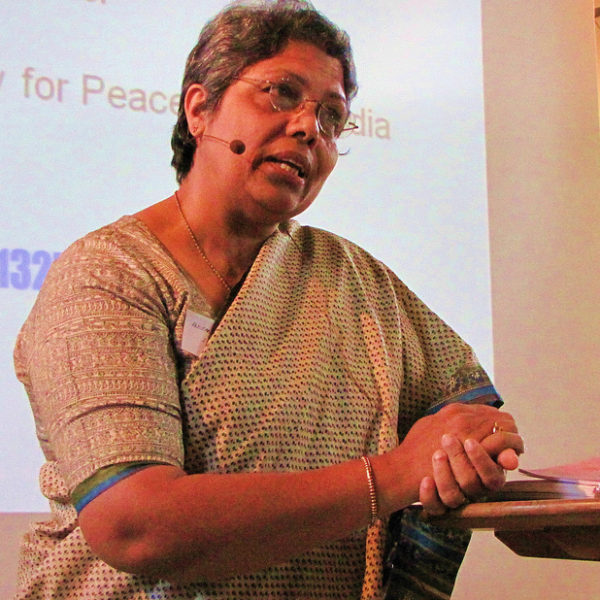About Us
Established in 1984, Cultural Academy for Peace is committed to nurturing a society based on peace, justice, reconciliation and respect for life. Cultural Academy brings together peace activists, educators and community leaders striving to augment awareness and create a culture of peace and Gender justice in Asia especially in India. It focuses on various channels of advocacy, lobbying from the Panchayat to the Parliament level networking with the Government, National and International organizations to work for nonviolent social change .


FOUNDER
She got her inspiration from her parents Acharya K.K. Chandy and Mary Chandy, (one of the founding members of the Ashram) who committed their life to the ashram which build an ecumenical in Central Kerala. They were also the founding members of the Fellowship of Reconciliation India (FOR India), a branch of International Fellowship of Reconciliation.
VISION
Towards a gender just society based on human values, equality, development and peace.
MISSION
To create a society based on peace, justice, reconciliation and respect for life where models of domination and destruction are replaced by those of nurture and cooperation.
LEGAL STATUS
Cultural Academy for Peace is registered under the Travancore – Cochin Literary Scientific and Charitable Societies Registration Act 12 of 1995 (Reg No: ER 469/2001)
Contributions to the society are exempted u/s 80G of the Income Tax Act 1961
OBJECTIVES
To engage in human rights activities and programmes through legal literacy, redress mechanisms, capacity building and to address violence against women and children.
• To build regional, national and international links to support women and increase their capacities to become more effective advocates for women’s fundamental human rights.
• To promote programmes with a gender approach to attain equal opportunities for women in all areas.
• To lead women from the village council to the negotiation tables
• To work towards nonviolent social change and raise a peaceful society by mainstreaming gender and gender sensitive active nonviolence.
• To address global issues like nuclear warfare, disarmament and environmental issues
